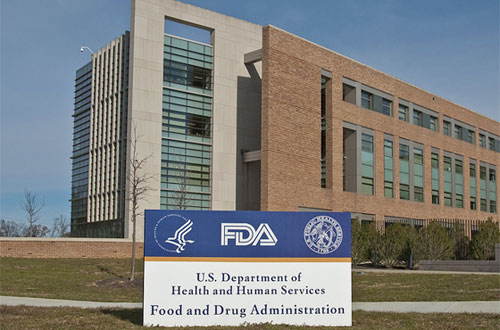
The FDA has given the green light to four major new treatments for skin cancer, patients with high cholesterol and two drugs for hepatitis C.
First up, Sanofi and Regeneron’s eagerly anticipated injected anti-cholesterol treatment Praluent (alirocumab) has been approved by the US regulator as the first in a new class of drugs known as proprotein convertase subtilisin kexin type 9 (PCSK9) inhibitors.
Praluent is now indicated as an addition to diet and maximally tolerated statin therapy in adult patients with heterozygous familial hypercholesterolemia (HeFH), or patients with clinical atherosclerotic cardiovascular disease such as heart attacks or strokes, who require additional lowering of LDL cholesterol.
But it has not been all good news for the two firms as this is a more limited approval in a smaller patient population than the companies had hoped for.
The drug’s US authorisation came on the same day that the CHMP granted the same licence for the medicine, with a final stamp of approval from the European Commission expected in the next three months.
Praluent is expected to make around $2bn in peak sales by the end of the decade, with the injection costing $14,600 a year – far higher than the $10,000 investors had expected before the approval.
Sanofi and Regeneron will be competing with Amgen’s Repatha (evolocumab) for this new market – Amgen’s drug already has European approval, and is expecting an FDA yes in the coming weeks for the same licence as Praluent.
Skin cancer
Meanwhile, Novartis’ Odomzo (sonidegib) has been approved for locally advanced basal cell carcinoma (BCC) that has recurred following surgery or radiation therapy, or who are not candidates for surgery or radiation therapy.
BCC is the most common form of skin cancer but is the least deadly – melanoma has the highest number of deaths but effects far fewer patients. Novartis already has several melanoma treatments on the market thanks to the recent asset swap with GlaxoSmithKline.
The pill will compete against Roche’s Erivedge (vismodegib), which was the first oral drug for BCC to see approval in 2012, although neither medicine is expected to be a blockbuster given the small patient population the treatments cater for.
Hepatitis C
Finally, Bristol-Myers Squibb’s hepatitis C drug Daklinza (daclatasvir) has been approved by the FDA as a combination treatment with Gilead’s blockbuster pill Sovaldi (sofosbuvir) to treat hepatitis C virus (HCV) genotype 3 infections.
AbbVie’s Technivie (ombitasvir, paritaprevir and ritonavir), which targets HCV genotype 4 infections, has also gained the nod from the FDA, and is the first regimen approved to safely and effectively this genotype.
Not to be outdone, Daklinza is also the first drug that has demonstrated safety and efficacy to treat genotype 3 HCV infections without the need for older injectable drugs.
Technivie can also be used without interferon or ribavirin – injectable treatments that have more side effects than newer treatments and are more difficult for patients to administer.
The BMS-Gilead combination treatment received a speedy assessment from the regulator under its ‘accelerated review programme’, something reserved for treatments that can help patients with an unmet medical need.
The drug, in use with Sovaldi, is already approved in Europe but with a much broader label as it can be used in the four main strains of hepatitis C (genotypes 1, 2, 3, and 4) as well as in patients with advanced liver disease and who have failed prior treatment with HCV protease inhibitors such as Merck & Co’s Victrelis (boceprevir) and Vertex’ Incivek (telaprevir).




